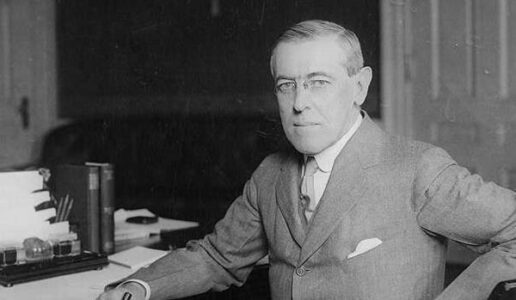Keylor Publishes Chapter on Wilsonian Internationalism
William Keylor, Professor Emeritus of International Relations and History at the Frederick S. Pardee School of Global Studies at Boston University, contributed a chapter to the recently published Italian book 1917: The Beginning of the American Century.
Keylor’s chapter, an extended version of a keynote address he gave at a conference last year at the University of Rome, is entitled “Wilsonian Internationalism and the Test of Time.” The chapter explores whether the ideas of President Woodrow Wilson including universal democracy, world disarmament, collective security, and national self-determination passed the test of time.
From the introduction of the chapter:
The ambitious project for a new international order of peace and justice that America’s twenty-eighth president promulgated in the last year of the Great War and then strove to incorporate in the postwar settlement at Versailles has long been the subject of heated scholarly debate. With the advent of the Cold War, self-described realists led by George F. Kennan denigrated what they regarded as Woodrow Wilson’s naïve, idealistic, unrealistic assumptions about the nature of international relations; they seemed totally irrelevant to a world order in which two nuclear-armed superpowers were locked in a ferocious competition for global dominance. But the end of the Cold War led to a sympathetic reassessment of the much maligned legacy of Wilson. In the decade following the end of the Cold War a succession of historical studies resurrected the project for world order that Wilson articulated at the end of the First World War and hailed it as a harbinger of the emerging international order that seemed to be taking shape in the last decade of the twentieth century. Works such as Frank A. Ninkovich’s The Wilsonian Century and Tony Smith’s America’s Mission: The United States and the World-Wide Struggle for Democracy in the Twentieth Century, 1 heralded not the “end” of history, in Fukuyama’s notorious phrase, but rather the return to an “earlier” historical moment.2 In the brief window of opportunity between the fall of the Berlin Wall and the fall of the twin towers, the Twentieth century seemed to be ending in a way that belatedly confirmed both Wilson’s ultimate faith in a safe and stable world free of war and his specific prescriptions for how to get there. In light of this recent historical revisionism, I would like to explore the question of whether the key principles of Wilsonian statecraft deserve their reputation as durable guides to world peace and security. Was Kennan right to repudiate his early critique and to admit that Wilson really was a man ahead of his time? In short, have his major ideas stood the test of time? To address this question, I would like to focus on four fundamental concepts that Wilson unveiled in his wartime speeches and then fought for tenaciously at the conference table in Paris: universal democracy, world disarmament, collective security, and national self-determination.
William Keylor served four consecutive terms as Chairman of the Department of History at Boston University (1988-2000) and has been Director of the International History Institute since 1999. At Boston University, he has received the Metcalf Award for Excellence in Teaching and the Methodist Scholar-Teacher Award.
